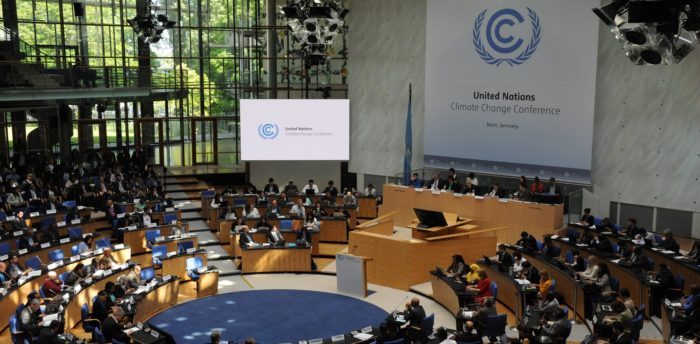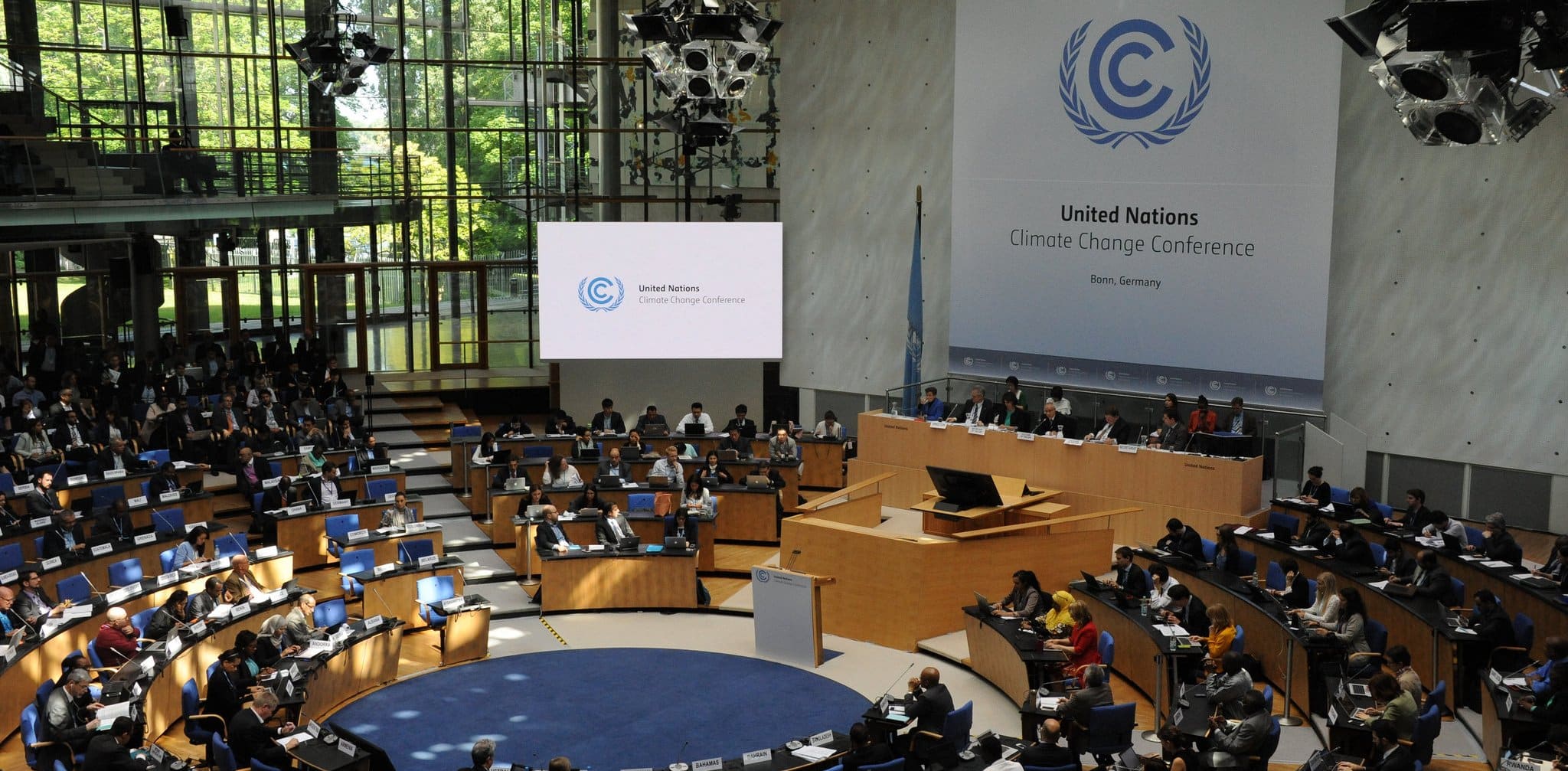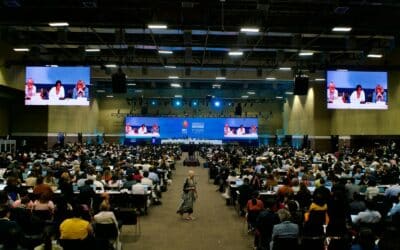
by Matthew Kennedy, College of the Atlantic
COP23 in Bonn this November saw the continuing intrusion of the geoengineering discourse into the global climate talks, but it was countered by civil society’s persistent rebuttal that geoengineering is not an appropriate means of addressing the ambition gap in international climate change policy.
At the periphery of the official negotiations were furtive campaigns for false solutions. Carbon Capture and Storage (CCS) advocates, for instance, plugged their eccentric techniques for “Carbon Dioxide Removal” (CDR) at informal side events and in press releases, including the much favored and highly problematic Bioenergy with CCS (BECCS). The UK government, the first to make an intervention in an open dialogue with the Fijian presidency, proudly announced intentions to work with the Scottish Parliament to accelerate the development of CCS. As we have seen since COP21 in Paris, dangerous proposals like massive sequestration projects slipped into the conference by way of the popular negative emissions euphemism.
Meanwhile, the Intergovernmental Panel on Climate Change (IPCC) is dedicating greater and greater attention to CDR and to the reckless strategies for Solar Radiation Management (SRM). Its upcoming Special Report on 1.5 Degrees, the primary scientific input to the 2018 Facilitative Dialogue on ratcheting up ambition, will adopt the underlying assumption that some geoengineering technologies will need to be employed to limit warming to 1.5ºC, contributing to the steady undermining by geoengineering of collective climate action towards the temperature goal. Likewise, the contents of the IPCC’s Sixth Assessment Report will grossly over-emphasize SRM and CDR, and this report will feed directly into the 2023 Global Stocktake, further distracting policy-makers from real and equitable solutions to the emissions gap. As the leading scientific body on climate change, closely tied to the UNFCCC, the IPCC’s turn toward geoengineering has scary implications for future climate negotiations.
However, a variety of voices also present at COP23 decried the invasion of these dangerous ideas into the UNFCCC and offered sane, just alternatives for mitigating the worst of climate change. A panel put together by Friends of the Earth Germany, the Heinrich Böll Foundation, Klima-Allianz, and Misereor, “The Case Against Geoengineering: How to Build a Fair Future in a 1.5 Degree World” pointed to the extreme risks and ethical consequences of both SRM and CDR. The panelists called for an end to outdoor experiments, for a global ban on SRM, and for solutions that go to the roots of the climate crisis, such as decentralized renewable energy production and a rapid fossil-fuel phaseout. A later event organized by the ETC Group and Heinrich Böll Foundation, “Geoengineering the Climate? Sustainable Development and Climate Justice in a 1.5ºC World,” elaborated further on the scientific uncertainties and human rights concerns of various technologies, repeating the need for a global ban and its legal consistency with the Sustainable Development Goals. These were only two of several such expressions at the COP, helping to redirect attention towards the Convention’s original mandate.
Additionally, in an open letter to UNFCCC diplomats and IPCC researchers sent during the COP, members of the CBD Alliance reiterated the significance of the CBD’s moratorium on geoengineering and advised country parties not to ignore their commitment to this agreement, nor to let “wishful thinking” about nonexistent techno-fixes substitute for pathways towards systemic change in the 2030 Agenda. Speaking to the rise of SRM experimentation in the U.S., an issue of Climate Action Network International’s ECO newsletter warns against the fossil fuel industry’s “attempts to sabotage all strong decarbonisation efforts.”
Following COP23, we must remain vigilant to the swift progress of geoengineering schemes into the UNFCCC. As governments consider strategies for responding to the emissions gap in their Paris goals, and in the lead up to 2018 and to future global stocktakes, they must not be permitted to sidestep their commitments, particularly those countries historically responsible for climate change. A growing coalition of civil society is demanding they choose meaningful, transformative mitigation options over risky, inequitable and illogical technological fixes.



